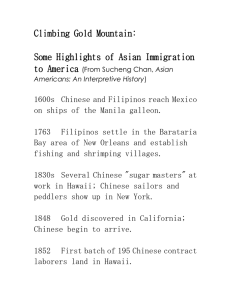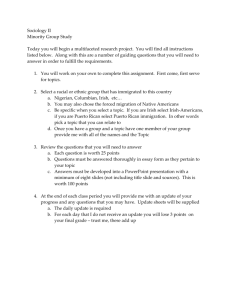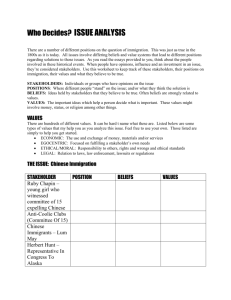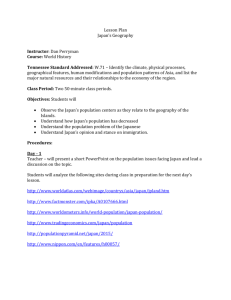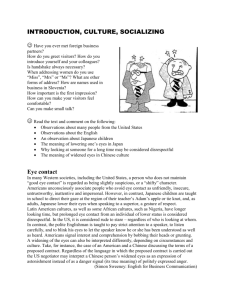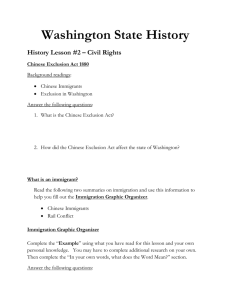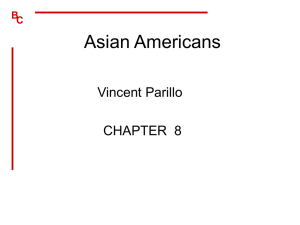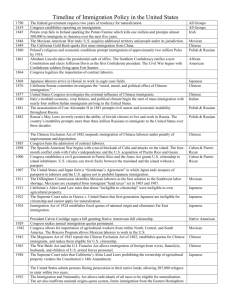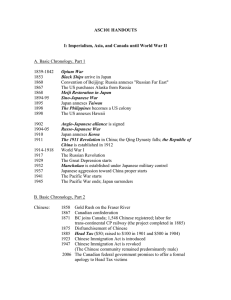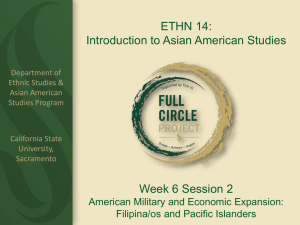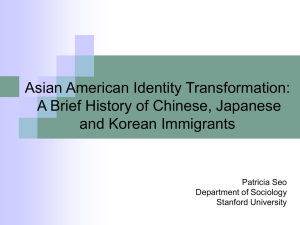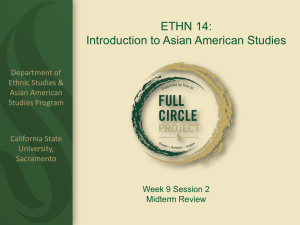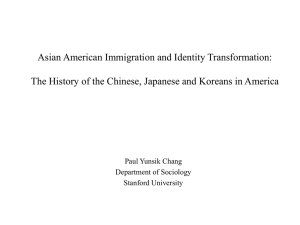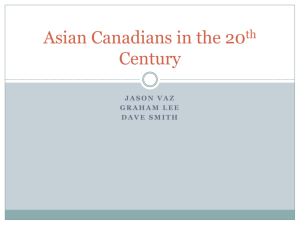File
advertisement
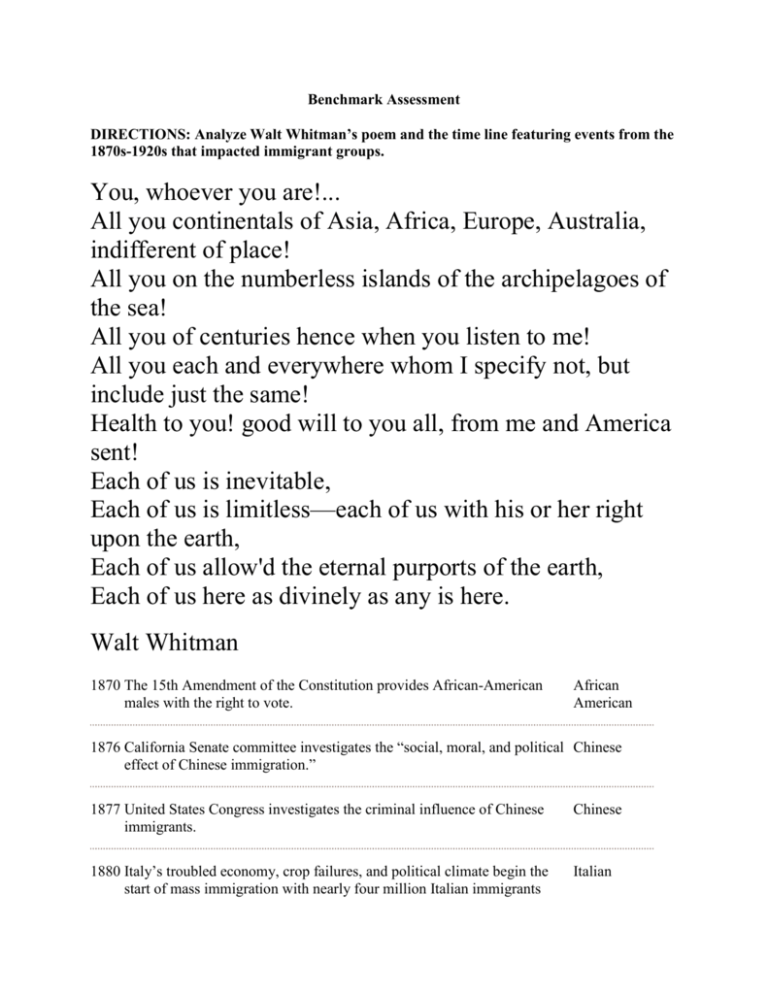
Benchmark Assessment DIRECTIONS: Analyze Walt Whitman’s poem and the time line featuring events from the 1870s-1920s that impacted immigrant groups. You, whoever you are!... All you continentals of Asia, Africa, Europe, Australia, indifferent of place! All you on the numberless islands of the archipelagoes of the sea! All you of centuries hence when you listen to me! All you each and everywhere whom I specify not, but include just the same! Health to you! good will to you all, from me and America sent! Each of us is inevitable, Each of us is limitless—each of us with his or her right upon the earth, Each of us allow'd the eternal purports of the earth, Each of us here as divinely as any is here. Walt Whitman 1870 The 15th Amendment of the Constitution provides African-American males with the right to vote. African American 1876 California Senate committee investigates the “social, moral, and political Chinese effect of Chinese immigration.” 1877 United States Congress investigates the criminal influence of Chinese immigrants. Chinese 1880 Italy’s troubled economy, crop failures, and political climate begin the start of mass immigration with nearly four million Italian immigrants Italian arriving in the United States. 1881 The assassination of Czar Alexander II in 1881 prompts civil unrest and economic instability throughout Russia. Polish & Russian 1882 Russia’s May Laws severely restrict the ability of Jewish citizens to live Polish & and work in Russia. The country’s instability prompts more than three Russian million Russians to immigrate to the United States over three decades. The Chinese Exclusion Act of 1882 suspends immigration of Chinese laborers under penalty of imprisonment and deportation. Chinese 1885 Congress bans the admission of contract laborers. 1887 The Dawes Act dissolves many Indian reservations in United States. Native American 1889 Unoccupied lands in Oklahoma are made available to white settlers. Native American 1896 The Supreme Court rules in Plessy v. Ferguson that “separate but equal” African accommodations for African Americans and whites are Constitutional. American This decision allows for legalized segregation. 1898 The Spanish-American War begins with a naval blockade of Cuba and attacks on the island. The four-month conflict ends with Cuba’s independence and the U.S. acquisition of Puerto Rico and Guam. Cuban & Puerto Rican 1900 Congress establishes a civil government in Puerto Rico and the Jones Act Cuban & grants U.S. citizenship to island inhabitants. U.S. citizens can travel Puerto Rican freely between the mainland and the island without a passport. 1907 The United States and Japan form a “Gentleman’s Agreement” in which Japan ends issuance of passports to laborers and the U.S. agrees not to prohibit Japanese immigration. 1911 The Dillingham Commission identifies Mexican laborers as the best solution to the Southwest labor shortage. Mexicans are exempted from immigrant “head taxes” set in 1903 and 1907. Mexican 1913 California’s Alien Land Law rules that aliens “ineligible to citizenship” were ineligible to own agricultural property. Japanese 1917 The U.S. enters World War I and anti-German sentiment swells at home. German The names of schools, foods, streets, towns, and even some families, are changed to sound less Germanic. 1922 The Supreme Court rules in Ozawa v. United States that first-generation Japanese Japanese are ineligible for citizenship and cannot apply for naturalization. 1924 Immigration Act of 1924 establishes fixed quotas of national origin and eliminates Far East immigration. President Calvin Coolidge signs a bill granting Native Americans full citizenship. Japanese Native American 1. What do you think was Whitman’s intended purpose for writing the poem? Cite evidence from the document to support your claim. 2. Compare and contrast the two documents. Describe at least two similarities and two differences. Cite evidence from the document to support your claims.

